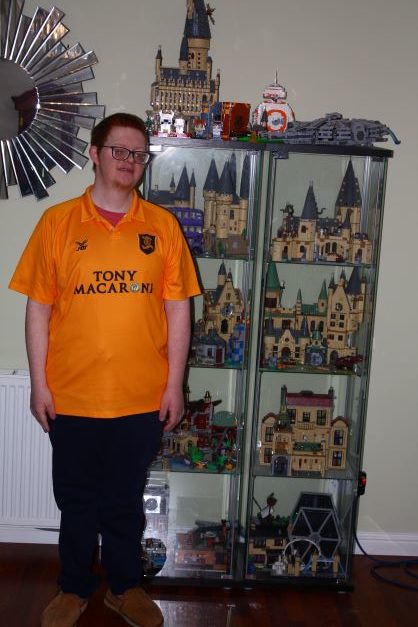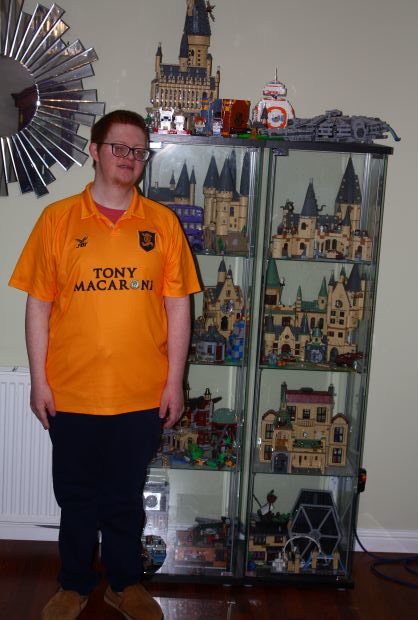
A young man is back living life to the full following specialist surgery for testicular cancer patients delivered by the Queen Elizabeth University Hospital (QEUH) in Glasgow.
Alastair Howells, 26, is now in the clear, after receiving a special procedure to remove the lymph nodes from the abdomen – which can become involved when cancer spreads from the testes.
It’s not the first time Alistair, who has Down’s Syndrome, has faced adversity, having undergone multiple heart operations in the past. However, he’s taken everything in his stride so far and continues to inspire his family on a daily basis.
It was a chance find which led to his testicular cancer diagnosis – with the family initially concerned he had a testicular torsion which was spotted while Alistair was bathing last summer. Alistair’s father said “It’s a difficult balance between giving a young man his privacy and dignity and checking his health given that he can’t do so himself. The timing was crucial but entirely good fortune.” Following a referral from the team at St John’s Hospital in Livingston to the Western General Hospital in Edinburgh he was diagnosed with testicular cancer and Alistair was quickly put on a programme of chemotherapy to tackle the illness.
However, even after four rounds there were signs the cancer had spread to his lymph nodes and so he was sent to the QEUH in Glasgow for a specialist procedure called Retroperitoneal lymph node dissection (RPLND). The procedure is delivered nationally from the QEUH and seeks to remove any remnants of the cancer which might remain in testicular cancer patients. It has a high national cure rate in Scotland.
For Alistair, the procedure has given him his life back, His father Mark Howells fears that had they not spotted the issue on time, he might not be here today. Mark said:
“I can’t overstate the devastation which would have been caused to our family had Alistair not got the care he needed at that point in time. Words cannot express the level of gratitude we owe to the teams across Livingston, Edinburgh and Glasgow which, combined, have delivered an absolutely platinum service which has enabled Alistair to be with us today. We will not forget their kindness until the day we die. Alistair is back to his cheerful, mischievous and loving self – full of energy and a continual inspiration for the rest of the family.”
Back home in Livingston, Alistair lives with parents Mark and Gillian and is the oldest sibling to sisters Fiona, 24, and Alison, 22. Since coming home from hospital, he’s been able to get back to doing things he loves – arts and crafts, watching Harry Potter movies, Lego and music, and he has also reconnected with his friends through attending his day centre twice a week and the Drama and Mime Group and the FABB club which are organisations that support young people with disabilities.
Mark added: “Alistair is the centre of the family. Despite his setbacks, which include two heart bypass operations, having a pacemaker fitted, and more recently catching COVID-19, Alistair continues to astound us with his resilience. He takes every single day as another opportunity to enjoy life and even during the most difficult periods of his cancer treatment he put on a brave face. He recovered quickly and he was back dancing away within two months of the surgery.”
David Hendry, Consultant Surgeon for Urology, at the QEUH said: “RPLND has a high cure rate and it’s a crucial lifeline for patients where initial treatment may not have caught all of the cancer. Alistair’s case highlights just how important it is to get unusual lumps or swelling in the testes checked out by a clinician as soon as possible. Testicular cancer has a rapid growth rate, with some tumours doubling in size within 10 days. It’s therefore absolutely essential to get on the right treatment as early as possible as this helps improve patient outcomes and cure rates. We’re delighted to see Alistair’s progress following treatment and wish him all the best for the future.”
